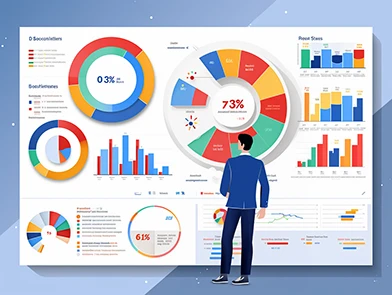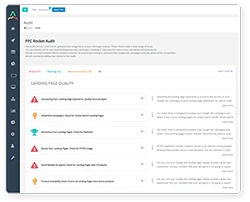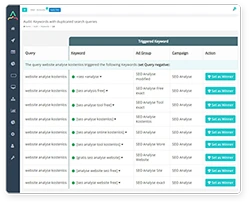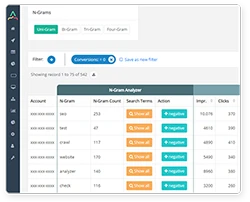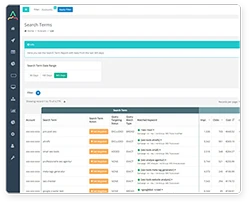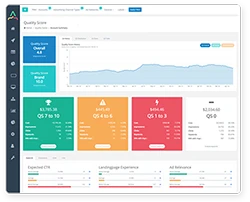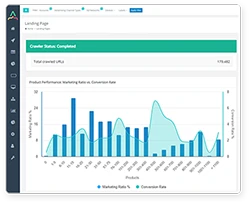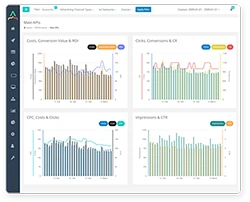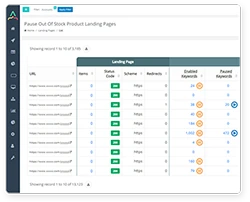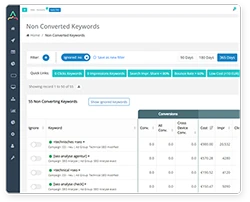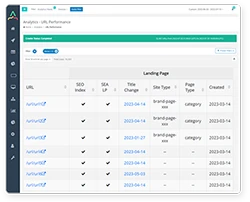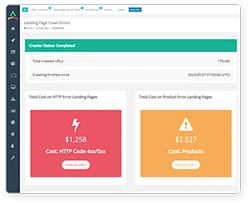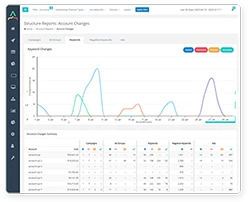Introduction
Google Ads is one of today's most powerful advertising platforms, allowing businesses and organisations to reach a massive, highly-targeted audience. This essential tool lets them target potential customers when they search for relevant products or services.
However, nobody is perfect, and people make many mistakes when using this platform. Even experienced advertisers can sometimes commit errors with Google AdWords, as it's a complex pay-per-click (PPC) advertising channel to keep up with, especially with constant updates.
If you want to maximise a successful advertising campaign, this article will enumerate the costly mistakes to avoid when using Google Ads.
Start Creating Better Google Ads
See how PPC Rocket can help you achieve best practices when it comes to Google Ads. Optimize your ad spend with all the tools you need to measure, track, and improve performance.
Not Optimising for Conversions
One of the beneficial features of paid advertising you can’t find in traditional advertising methods is that it allows you to measure the success of your ads. It’s best to set up conversion goals in your Google Ads account and focus on optimising your campaigns to achieve one or multiple conversions.
You should also determine if you want to prioritise generating leads or increasing sales. Moreover, conversion tracking can improve key performance indicators (KPIs) like leads, sales, phone calls, and app downloads.
Not Utilising Negative Keywords
Many business owners hesitate to use negative keywords as they assume it could harm their rankings. Unfortunately, that’s not the truth, as neglecting these terms do more harm than good. Including negative keywords in your campaign helps ensure your ads only appear in relevant searches. They can also help avoid unnecessary expenses caused by irrelevant keywords or phrases, regardless of your objectives.
You can discover negative keywords using the Search Terms Report feature in Google Ads. Then, incorporate these negative keywords into your campaign and generate lists to prioritise your best-performing keywords.
Poor Keyword Research and Using Broad Match Keywords
Never aim for keywords without proper research, as there are tools that can help you determine the search volume for your most essential keywords. You should also know that using broad-match keywords can lead to irrelevant searches.
Instead of focusing on specific keywords, try targeting broad match modifier keywords and conducting thorough research on keywords for your campaigns. You can also use Google's Keyword Planner tool to identify the most popular keywords for your business.
Opting for the Search and Display Network in the Same Campaign
You can maximise your Google Search Ads by only displaying them when people search for your specific keywords. You should also create separate campaigns for the Search Network, Search Partners, and Google Display Network, as they all function differently. Moreover, target your display advertising to Google Display Network and search advertising to Google Search Network and Partners.
Not Creating Multiple Ad Variations and Not Using Ad Extensions
Create multiple ads for each targeting set in PPC Advertising using different languages and ad extensions. You should also combine Expanded Text Ads and Responsive Search Ads for each Ad Group for optimal results.
Not Understanding the Goals of Google Adwords
You can use the Target Cost Per Action (CPA) or Return On Ad Spend (ROAS) bid strategy by consistently testing and optimising over time. You should also find the best keywords to get the best results. Moreover, understand what other advertisers do in Google Ads, optimise campaigns, and focus on conversions to accomplish goals..
Not Testing Bidding Strategies While Optimising Google Adwords
Use more intelligent bidding strategies like Enhanced Cost-Per-Click (CPC) and Target CPA and ROAS to maximise your campaign by focusing on your KPIs. Begin with Enhanced CPC and conversion tracking. Once you start driving conversions, move on to other bid strategies.
Conclusion
Google Ads can help your business find the right market, but you can only gain more leads if you use it properly. You can maximise your advertising efforts by educating yourself on common mistakes and practising the right strategies.
If you need a Google Ads optimisation tool for your business, check out the PPC Rocket! Our solution has six modules to help you analyse your account and optimise your ad spend to boost your return on investment. Start your free trial now!
Start Creating Better Google Ads
See how PPC Rocket can help you achieve best practices when it comes to Google Ads. Optimize your ad spend with all the tools you need to measure, track, and improve performance.
Share with
Articles
Discover New PPC Marketing Tips, Strategies, and Insights
June 22, 2024

How to Effectively Improve Your Ad Copy
Effective ad copy is crucial for a successful advertising campaign. To create ads that resonate with your audience and drive sales, use these seven tips for improving your Google ad copy: know your audience, highlight benefits, use clear and concise language, create a sense of urgency, use emotional language, test and refine, and stay relevant. Continually testing and refining your ad copy, staying relevant, and working with a reputable Google ads agency can also help improve the effectiveness of your ads and grow your business.
May 25, 2023

Google Ads Campaign Types
In this article, we will explain the difference between the various campaign types, which types of businesses they are most suited for, and the pros and cons of each.
March 11, 2025

Onboard the Right PPC Manager with These 3 Interview Questions
But by asking the right interview questions, you can identify which candidates best fit the job. Read more to know the three interview questions to ask.
January 11, 2023

Google Ads N-Grams
This article will explain how you can leverage n-grams to your advantage and use them to get the most out of your Google Ads campaigns.
4.7 Star (104 ratings)
from PPC Professionals
Stop Word-Level Budget Bleeding.
Standard reporting misses recurring word patterns that never convert. Dissect N-Grams across your entire search history to eliminate hidden waste in one click.
Find Waste Patterns